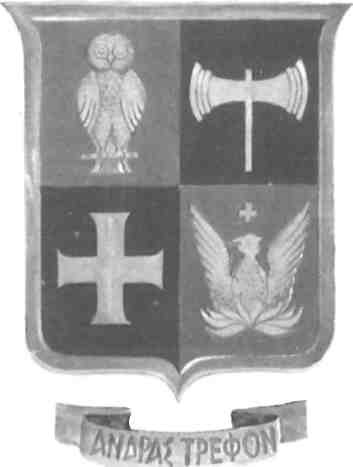
When the newly founded Hellenic-American Educational Foundation first announced in the press in early October 1925 that a new boys’ school, the ‘Athens College’, would start operating that month, it received no inquiries at all. It was not until the third day of registration that the first student enrolled. By the time the school started operating on 19 October, only 15 students had matriculated.
That was some time ago. Today, 65 years later, occupying a total of 97 acres in its two campuses and with a coeducational student body of nearly 3600, Athens College is more interested in reducing its student population than in attracting prospective students. In fact, a new admissions policy which aims at curbing the size of the school over the next few years has just been introduced to select the students who will start at the elementary school this term.
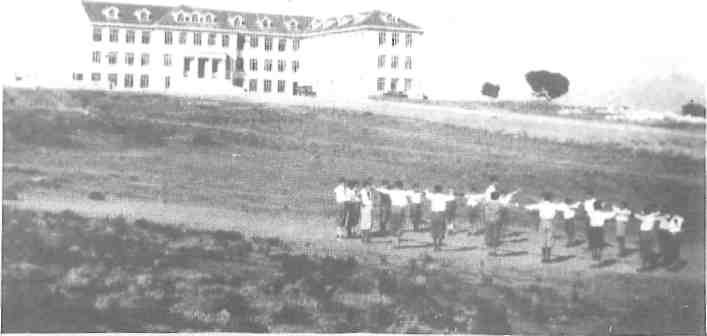
This is a response to the extreme pressure that Athens College faces as a result of the very high demand which exists to secure a place in what many consider “the number one school in Greece.”
“There are not several other Athens Colleges in Greece. That’s the real problem of our admissions system,” said Mr Walter McCann, President of Athens College. “There ought to be more schools that are perceived by the parents to be as good as Athens College for their children.”
“It would take the pressure off us, it would be good for the country. It would also be competitive for us, which is healthy. It would keep us on our toes intellectually and organizationally,” Mr McCann added.
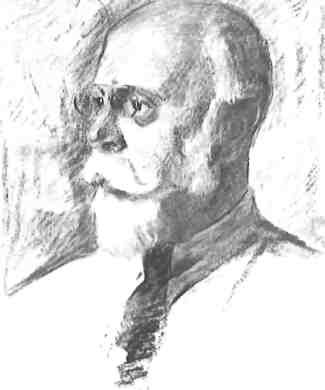
The new admissions system, which will select roughly half the student population by examinations and the other half by several methods, including lottery and direct and discretionary admissions, attempts to reduce the size of all classes in the demotic school. This policy reinforces examinations to select students, which were restricted in 1979 when the lottery system was adopted.
This complicated screening process, which still provides access to students regardless of their ability to pay for tuition, attempts to strengthen the high quality of academics which has characterized the school since its inception. There are many features indeed which make Athens College a ‘hot’ school. In fact, it is a unique educational institution in many ways.
The special character of the College was defined, legally, in its early years. Athens College was founded as a pilot school which would serve as a breeding ground to introduce reforms into the Greek educational system and thus it received the full support of Prime Minister Eleftherios Venizelos from the outset.
“…In private institutions it is possible to put into practice greater and more successful innovations. Being merely under the supervision of the State and having to comply only with its general guidelines, they enjoy freedom denied to public institutions and are consequently able to accomplish greater progress. We expect Athens College to make such progress. Such is my idea of the meaning of the College.” These were Venizelos’ words in May 1929 at the inauguration ceremony of Benaki Hall, which still dominates the College’s 35-acre campus in Psychiko. The land had been donated by Emmanuel A. Benaki.
The law under which the College operates protects its privileged status, granting certain freedoms to this “isotimo” school, which means it is equivalent to a public school. It was the second Greek school to be granted status as an isotimo school by the Greek government. The founding law gives the school the freedom to give lessons not included in the State curriculum and it allows for lessons in the Greek curriculum to be taught in English, which is also offered as a primary subject equivalent to Greek. This law affirms “the recognition of a special character,” stated Dimitris Karamanos, former president of the Athens College Alumni Association.
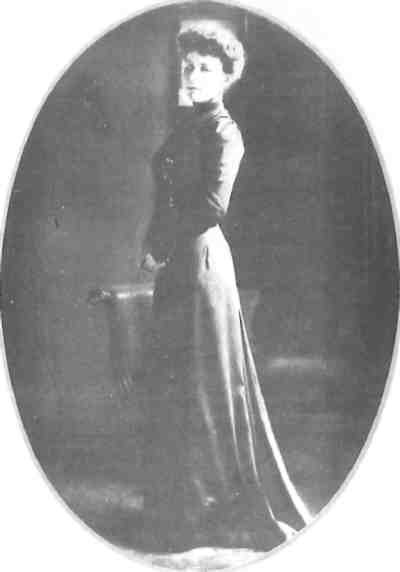
“Athens College legitimizes the (Greek educational) system by being different from it, different enough that it provides a point of comparison, a point to reach for,” said Mr McCann. “Athens College is more open, somewhat less authoritarian than other schools in Greece.”
Athens College is the only Greek school administered by an American president, which attests to the school’s belief since its founding in the value of a bicultural, bilingual education. Athens College was founded with the financial support of Emmanuel A. Benaki and his son-in-law, Stefanos Delta. But soon after its establishment, American funds allowed for the creation of a Board of Trustees in New York, which since then has been responsible for raising money and administering the funds of the school in the United States. The Board of Trustees currently has 25 members. In Athens, there is an 11-member Board of Directors chosen from the 50 members of the Foundation, which is the ultimate governing body of the school.
Moreover, when the school started operating, it was influenced by the presence of many graduates of Robert College, an American institution of higher learning in Constantinople with a multinational student body.
“The school is Greek but it is American-oriented. There is no other school in Greece like this,” stated George S. Phylactopoulos, a graduate of Robert College who served as headmaster of the boarding department at Athens College from 1932 to 1970. He was also a professor of psychology at the College and chairman of the Education Council. He added that at the College “the Greek roots are cultivated through American methods,” thus creating a “fine mixture of the two cultures.”
Athens College was founded as “an educational establishment which would combine the benefits of two cultures, one ancient and traditional and the other modern and aggressive, in a good sense. I think since that moment when they fused together we had the start of a school which is bicultural,” according to Mr Haralambos Vellis, President of the Board of Directors of Athens College and Chairman of the Board of Directors of the Greek-American Educational Foundation. “This fusion has produced a tradition of values which has survived over these 65 years. The school has been through two dictatorships, one world -and one civil- war without ever losing its identity or its purpose,” he continued.
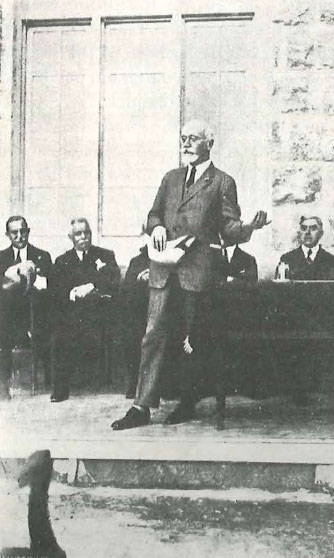
“I don’t know of any other Greek school that has such a strong program in English in general, academically and extracurricularly,” said Marika Berlind, a student who just finished the College’s unique four-year lykeion.
“The English program is just as strong as any English program in an American school. Your knowledge of the English language maybe even better because you are taught as a foreigner as well as an American,” she explained.
The success of Athens College’s forensics team attests to the school’s strong bicultural principles. The team, established 15 years ago, introduced forensics at a high school level in Greece and sponsored the first Panhellenic competitions. Nowadays, the Panhellenic competition has become more of an international event since American schools from Cairo and Kuwait also participate. About 200 students compete in the Panhellenic tournaments, which are now held once a year.
The team also holds an impressive record in competitions abroad. In 1987 Athens College became the first Greek school to participate in an international tournament at a university level. Since 1987 the team has travelled to Australia, Ireland, the United States and Scotland to compete in the World Universities Debating Championship. Last year, at the international debate championship held at Princeton University, two of the College’s debate duos finished in first and third places among the 50 foreign teams participating.
The forensics team has also participated since 1987 in the Barkley Forum, a tournament for American high schools held annually in Atlanta, Georgia. Athens College, the only foreign school to participate in this competition, was made a permanent member of the tournament this year, thus becoming the first foreign school to be admitted.
Another feature which makes the College such a unique educational institution is the magnitude of its scholarship program, which dates back to the early years of the school. The College is a non-profit institution and it strongly believes that education is for the deserving regardless of the ability to pay, as long as a minimum academic performance is maintained.
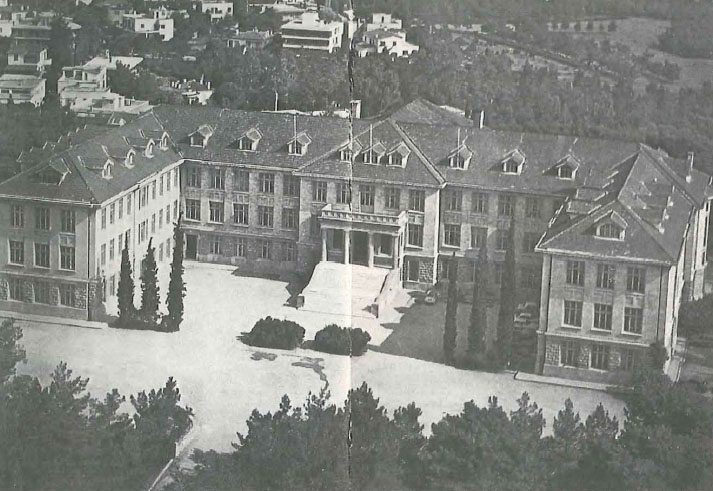
An Endowment Fund of Scholarships at Athens College was established by the author Penelope Delta, wife of Stefanos Delta, in the early 1930s. This assumed the responsibility of paying for the needy students’ ten-year training at the College. After World War II, part of the College’s rehabilitation policy included raising funds for the scholarship program. Homer Davis, president of the school from 1932 to 1960, played an important role in raising scholarship funds in the United States. Athens College also has a regional scholars program, by which donors provide full scholarships (which include tuition and the student’s expenses, and even an allowance to send home) for children from specific areas of Greece to attend the school. They are chosen by competitive examinations given even in remote parts of the country. It was initiated by a night watchman at Wellesley College in Massachusetts who willed his lifetime savings to the College so that a boy from his native village in Messenia could always attend the College. Though only a handful of students attends the College under this program nowadays, the regional scholars program was very active when the College had a boarding department, which accommodated up to 75 regional scholars.
From 1925 to 1975, Athens College awarded nearly six million dollars from its scholarship fund to needy students. The school’s commitment to granting scholarships became very strong after 1945 because the country was devastated during the German occupation. After the war, the school established the ‘war victims’ program’ and more than 50 percent of the students were given scholarships, according to Mr Phylactopoulos. This past year the College awarded over 115 million drachmas in financial aid to nearly 550 students from demotic to high school.
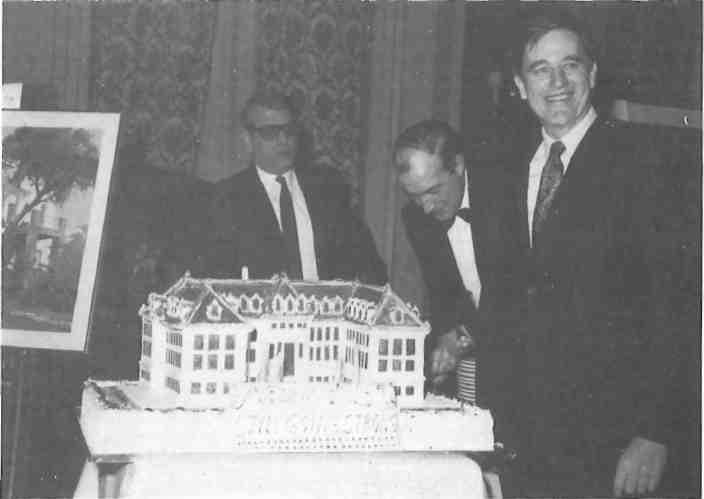
The belief in educating children who do not have the financial means to attend the College is a fundamental doctrine of the school. It reflects Athens College’s commitment to educating the youth of Greece, thus granting equal access to children from all segments of the population.
“Athens College is in some ways a public school. It’s not a State school. There’s a difference,” stated President McCann. “Athens College is a private institution in the public service,” he added, alluding to the motto of New York University.
Mr McCann explained that the Psychiko Lykeion, a State school, is accessible only to children whose families can afford a house in Psychiko, not to students from less affluent areas. Athens College, though not a State school, provides access to children who are admitted with the lottery system or examinations, regardless of their economic background.
“We are open to anybody, irrespective of where they live and no matter how much money they need. There are no geographic or financial barriers to attend Athens College,” said President McCann.
Still another exceptional feature of Athens College is its constant drive to adopt innovations in the field of education. “Innovations which were first introduced into Athens College decades ago are being considered new elements in general education in Greece,” said Mr Karamanos.
“We are always opening the road, we are leading. That’s a proof that we are recognized as the number one school in Greece’,” explained Nicos Macris, headmaster of the lykeion and a College graduate from the class of 1955. Some of these innovations include the election of the student government by the students; tracking classes in the lykeion according to desmiss a current four-year lykeion program which gives students the option of finishing in four instead of three years; oratory contests in Greek as well as in English; a strong tradition of student fundraising (exormisi), which was started after the war to help in the rehabilitation of the country; the use of libraries, including a history library; the introduction of science laboratories to supplement classroom work; starting foreign languages very early in the demotic school; the introduction of extracurricular activities; an extensive athletic program with modern facilities; the free studies program, which gives students the opportunity to choose from a wide range of elective courses; etc. All these innovations add to the school’s unique character.

One of the major academic innovations introduced by Athens College (in the 1950s) was in the field of classics. The study of classics in the original was supplemented by literary translations of the texts, which allowed the students to approach the ancient texts as sources of ethical, aesthetic and cultural values rather than purely as linguistic texts.
” … The systematic study of the classics in translation was officially introduced in Greek education a full 15 years later in an educational reform under the Centre government,” according to Mr Phylactopoulos.
Though Athens College, after 65 years, still preserves its fundamental principles, values and beliefs, there are some things that have changed throughout this period.
Perhaps the biggest change over the past 65 years has been physical: the 35-acre campus in Psychiko expanded when the industrialist and philantropist Bodossakis Athanassiades donated 62 acres of land in Kantza (east of Athens) to construct new facilities for a six-year demotic school in 1974. This demotic school, however, was not enough to satisfy the demand of parents who wanted to have their children attend Athens College. In 1980, the Hellenic-American Educational Foundation created Psychiko College, a demotic school in the Psychiko campus which has administrative autonomy.
Today there are about 1000 students in Kantza, 700 in Psychiko College, 960 in the gymnasium and 920 in the lykeion, compared to a total of 30 students that attended the College during its first year of operation. Six students graduated from the College in 1929, 259 this year. In 1925 the College offered a five-year program today it is a 12 or 13-year curriculum.
“We have changed in numbers. The Athens College that I recall as a student has no comparison in term of numbers,” Mr Macris stated.
Moreover, the school became coed in 1977, with the first female students graduating in 1988. The physical facilities of the College have improved over the years and now include, among other things, a swimming pool, an indoor theatre, lighted tennis courts and two soccer fields.
“The physical facilities have added to the prestige of the school,” said Mr Phylactopoulos, adding that there is one element of the College which has drastically changed the character of the school: Athens College is no longer a boarding school.
During the 1960s the boarding department, with 230 students supervised by 25 teachers living in five houses, operated to its full capacity. It ceased operations in 1983 because it was running on a deficit. The boarding department housed students from the provinces, from abroad and from Athens and surrounding areas.
“This was a national service. I am very sorry that Athens College is no longer a Panhellenic institution. It nolonger serves the Greek of the diaspora,” lamented Mr Phylactopoulos, who headed the department for 38 years. “It has become a school of Athens. A boarding school is an additional school. In the day department, the emphasis is mainly academic, in the boarding school it’s also social and psychological,” he added.
With or without boarding school, Athens College is still a first-rate educational institution. It enjoys enormous prestige in Greece as well as abroad. Throughout the past 65 years it has clearly left its mark and set precedent for others to follow.
“The influence and the imprint that Athens College have had on Greek society are much stronger than those of any other educational establishment in Greece,” stated Vellis.
As the College nears its 65th anniversary next month, its president believes that it needs to reassert its identity.
“We need to be clearer about what Athens College stands for. Our most important task is to restate who we are. In my opinion, Athens College is a school that can best serve the needs of average and above average ability students who want to be pushed and pulled so they can really achieve their full potential. Among this group we expect that, as there always has been, there will be some truly exceptional young people,” President McCann concluded.







